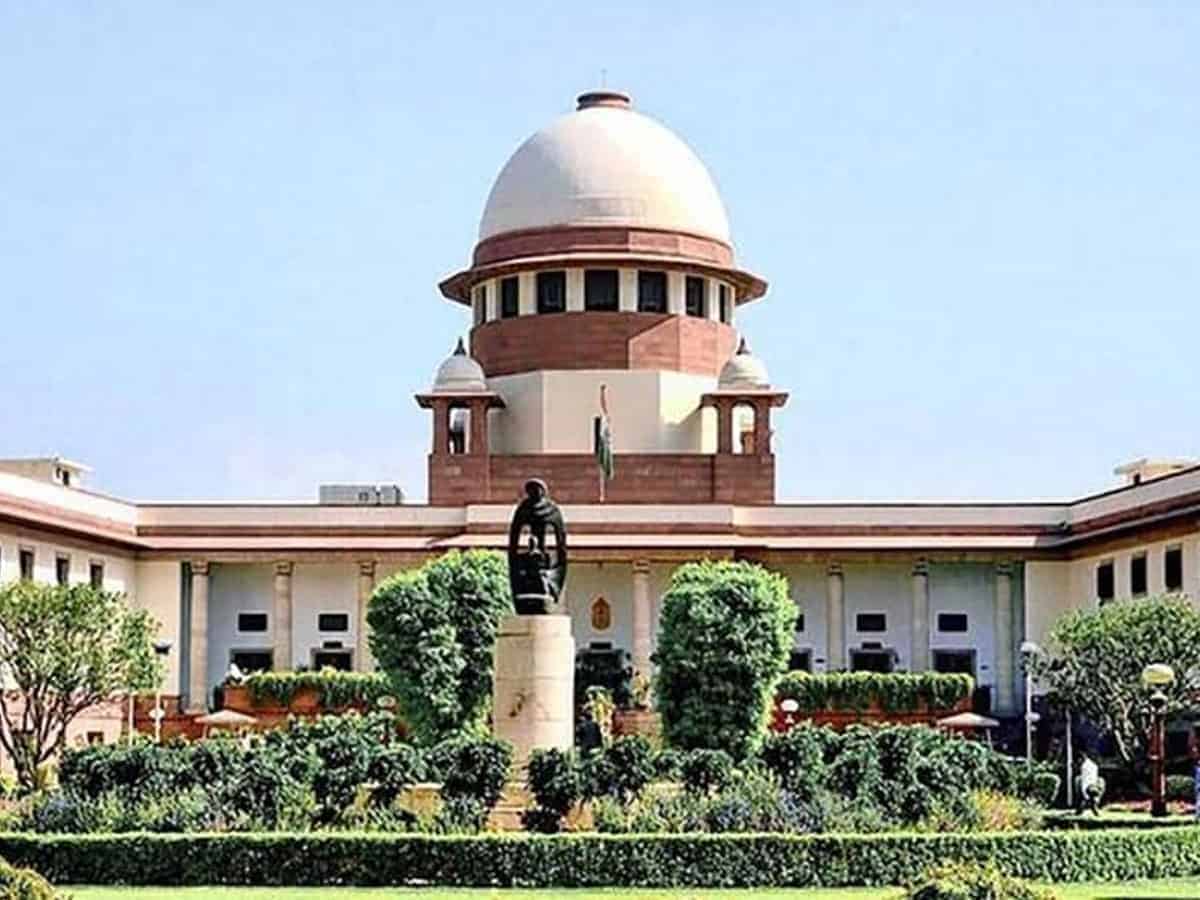
New Delhi: The Supreme Court Tuesday asked the Centre and the Manipur government to take steps to ensure the safety of citizens and public and private property in the ethnic-violence hit state, making it clear that law and order fell within the executive domain and the court cannot decide where the Army and central forces should be deployed.
The top court, while considering the suggestions made by lawyers representing the parties to the case for mitigating the sufferings of the citizens of strife-torn Manipur, had a word of caution for all when said, “We request all the parties to maintain equilibrium in their speeches and steer clear from any sort of hate speech.”
Taking strong objection to some of the suggestions, including those for deployment of Army and central forces in areas where the minority Kukis have been allegedly attacked, a bench headed by Chief Justice D Y Chandrachud said the top court has not done so in the nation’s history of over 70 years as the Army falls under the civilian control of the executive.
“This can’t be the tenor of the suggestions. For instance, you are asking the court to direct the Indian army and paramilitary forces to take particular steps. Frankly speaking, in the history of our nation in the last 70 odd years the Supreme Court has not given any direction to the Indian Army.
“One of the great hallmarks of our democracy is the civilian control over the Armed forces. Let us not breach that. That is something which is one of the strong points of this nation. We will not do that. We are not going to issue directions to the Indian Army,” said the bench, which also comprised justices P S Narasimha and Manoj Misra.
“However, we impress upon the state government and the Union (of India) to ensure there is protection of life and liberty of people in Manipur. Where exactly a particular battalion will be posted etc is a dangerous area for us to get into,” the bench said.
The court termed as “innuendos” the allegations that certain militant groups, which are allegedly attacking the minority tribals have the support of the governments (at the Centre and in state).
“If these are given as part of the suggestions then they (governments) will not be able make any headway anywhere..how can they be part of suggestions?” the bench said.
The top court considered some of the suggestions, including those related to relief measures, supply of medicines, and dealing with the bodies of the victims, and asked Solicitor General Tushar Mehta, appearing for the Centre and the Manipur government, to consider them and file an action taken report (ATR) within one week.
It also asked the government’s law officer to consider disbursing compensation for reconstruction of villages and places of worship, and giving adequate representation to communities in committees set up in seven districts of the state to oversee the relief and rehabilitation work.
At the outset, the solicitor general referred to the certain suggestions by lawyer Nizam Pasha, appearing for one of the petitioners, and said he has no objection to some of them, but with regard to a few others, further consultations were needed.
One of the suggestions sought a direction to the state government to designate an officer to identify and hand over the bodies lying in mortuaries in hospitals across Imphal to their relatives for performing the last rites.
“There is an acute shortage of doctors in the district hospitals in the hill districts. The doctors deputed by the health ministry and those promised by the Home Minister may be sent to the district hospitals in the hill districts to address this shortage,” was another suggestion.
There is shortage of essential medicines, dialysis machines, CT Scan machines in the district hospitals in the hill districts which must be addressed, said Pasha. The state government said it will look into these suggestions and try to resolve the grievances.
“It has transpired before the court that most of the suggestions are acceptable to the administration. As regard to some of the suggestions, the solicitor general states that necessary consultations would be held at the level of state administration and such action as is warranted would be taken expeditiously,” the bench noted in the order.
It would be desirable that steps be taken to build public confidence and there should be representation of communities in such committees, the bench said.
During the hearing, there was strong opposition to some of the suggestions put forward by senior lawyer Colin Gonsalves, appearing for the Manipur Tribal Forum, when he sought setting up of an SIT consisting of officers from outside Manipur to probe the attacks on Kukis in the state.
“A mentally challenged tribal woman was killed and another was beheaded,” Gonsalves alleged, adding “a call for the genocide of Kukis has been given on national television.”
The bench was considering the suggestions given by the lawyers for various petitioners who had moved the top court for directions to deal with the ethnic violence in the state.
On Monday, the top court, while hearing a batch of petitions on the violence in the state, said it was not a platform to be used for escalating tensions in the state and asked the lawyers representing the warring ethnic groups to exercise restraint during the court proceedings.
It was hearing petitions filed by different NGOs, including the one by ‘Manipur Tribal Forum’, which has sought Army protection for the Kuki tribe, Dinganglung Gangmei, the chairman of the Hills Area Committee of the Manipur Legislative Assembly, who has challenged the high court’s order on designating the Meitei community as a Scheduled Tribe, the high court bar association and others.
Over 150 people have been killed and several hundred injured since ethnic violence broke out in the state on May 3, when a ‘Tribal Solidarity March’ was organised in the hill districts to protest against the Meitei community’s demand for Scheduled Tribe (ST) status.
The Meiteis account for about 53 per cent of Manipur’s population and live mostly in the Imphal Valley. Tribal Nagas and Kukis constitute 40 per cent of the population and reside in the hill districts.

